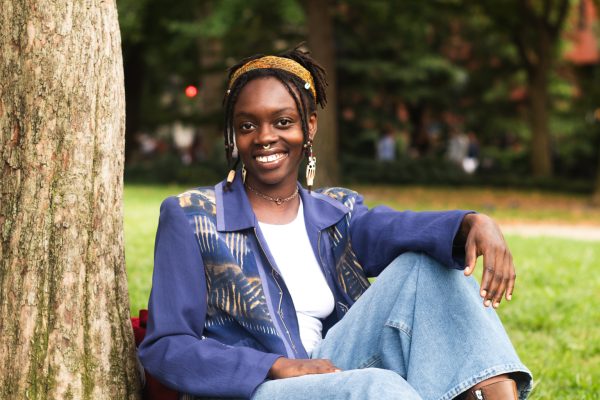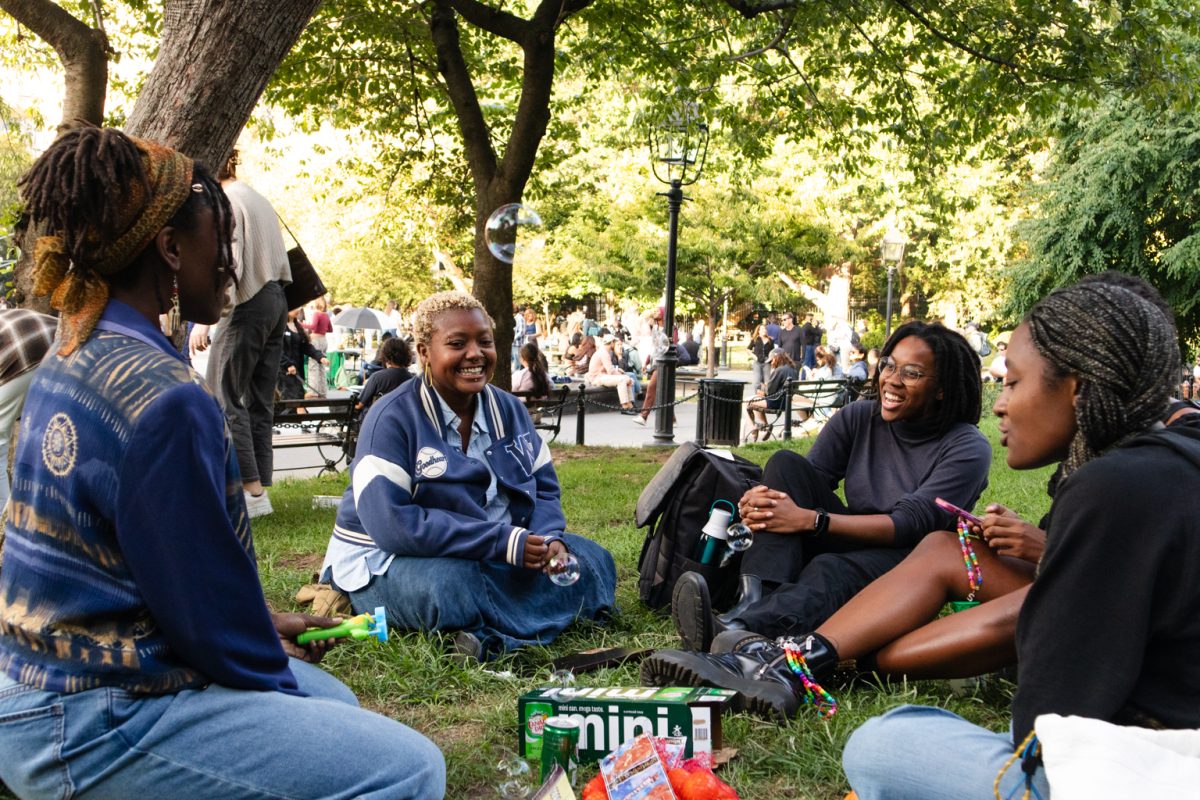NYU is far from a historically Black college, but the Black experience in New York City is truly like no other. It’s hard to match the energy of going to a summer block party popping off in Harlem, hearing boom-bap bass blaring from passing cars or munching on meat patties from your favorite Jamaican restaurant.
In my two years as an NYU student, I’ve gone out of my way to explore my Blackness and my womanhood through the school’s numerous affinity groups: the Black Student Union, the African Students Union, the Organization of Black Women, Womxn of Excellence, Strength, and Tenacity, and more. While these groups were undoubtedly productive, I found myself at a dead end when it came to grappling with the specific intersection between my Blackness and my sexuality.
Zuri Alexander, a sophomore at the Gallatin School of Individualized Study, had a similar experience.
“I honestly do find it a little bit difficult to find spaces for Black queer students at NYU,” Alexander said. “My experiences with white queer people are supportive, but at times it’s missing a layer that you get with other Black queer folks. I know that there are Black people out there — they just like to hide out.”
Although Alexander has been able to find smaller Black queer circles at Gallatin, she, like many others, had been seeking out something more authentic and consistent, as the infrequent meeting times of other clubs fostered fewer connections than she desired.
Brown Sugar Brilliance, a club founded by Steinhardt senior Mae Monga but unaffiliated with NYU, could be the space Alexander had been searching for.

As someone part of Gen Z whose formative years coincided with the height of COVID-19, Monga spent quarantine thinking about their own sexuality and gender while brainstorming a productive way to express it.
“I was really looking for Black queer communities specifically, and so I just kind of started going to events that had these identities,” Monga said. “But they were mostly in nightlife.”
Although queer nightlife has seen a storied history, there’s been a growing push to extend this visibility into the daytime. During the pandemic, when the city shuttered clubs and bars, there was a demand for fellow Black queer people to congregate outside of nightlife.
Brown Sugar Brilliance’s main initiative seems simple: to serve as a place where Black queer folks can mingle and come together. But there lies a deeper meaning beneath the surface — unearthing the toxic attitudes that can hinder the Black community from fully exploring their identities.
As a Nigerian who grew up in the American South, I find that the double whammy of toxic masculinity rooted in both cultures is an unwinnable game. In my community, women and girls are often caught between an impossible double standard; we’re dismissed as too emotional, but demonized if we dare show it. Emotion equates to weakness — and thus to femininity. Conversely, if a man, the presumed head of the household, tears up or shows interest in things other than sports or video games, he’s forever branded as sassy.
“We’re taught to fear our emotions,” Monga said. “And that just closes us off from the main part of living.”
Brown Sugar Brilliance rejects this notion, with the club encouraging its members to traverse the full emotional spectrum.
Black queer folks have weathered homophobia and racism from younger ages, and have had to grow up faster and shut off their childlike wonder sooner. Part of this tendency can be attributed to a social process called “adultification,” a phenomenon where the presumption that Black kids are older than they actually are can lead to increased discipline, policing and hypersexualization.
Monga hopes to bring that youthful spirit back, drawing influence from their work in Divine Times Collective, a similar Black queer initiative that Monga and their friends started in 2022. The group’s purpose was not only for fellowship and celebration, but for rediscovering the Black rituals that were silenced throughout centuries of subjugation. For instance, Divine Times hosted candle-making workshops, partnered with Black herbalists to make tea blends using various traditional herbs and collaborated with the legendary Black multi-instrumentalist Laraaji for a meditative festival event.
As an intense creative who enjoys music and drawing in their free time, Monga emphasized that the point of BSB — an extension of Divine Times — is to encourage us to exist as is, and to resist the suppression that white, heteronormative social pressures demand.
“It’s not about being good at anything. It’s not about showing off your skills. It’s honestly a cathartic experience,” Monga said. “Every event that we have, whether it’s a workshop, or a jam, or whenever we do the festival, it’s about inner child healing; just tapping into your playful, curious spirit and just being like you were as a kid.”
When I attended BSB’s first meeting on Sept. 15, I felt the softness and safety that Monga described firsthand. The sweet scent of gardenia incense greeted me as members peeled tangerines and blew bubbles. We drank ginger ale — the undisputed number-one healing drink for Black folks — while we played “We’re Not Really Strangers,” a talking card game meant to get players personal.
I delved into self-realizations that I hadn’t vocalized in an achingly long time. The other members told their stories too, ranging feelings of displacement and self-doubt, which led the discussion inevitably to one about astrology.
Alexander, who attended Brown Sugar Brilliance’s first meeting, noted that the space allowed her to fully express feelings akin to euphoria, no matter how much the white heteropatriarchy tries to suppress it.
“Part of what makes us so powerful is how we love each other and how we find community,” Alexander said. “I think Black love and joy is magical and I think there’s something inherently phenomenal about queer people getting together and making magic.”
Spirituality and Black queerness have been closely linked throughout history. In the traditional Yoruba religion, major deities are genderless, nonbinary entities that guide believers towards inner peace and stability. Precolonial Angolans held same-sex relationships in high regard; they believed that gay men held divine feminine spirits, while women could take on the title of husband.
Through Brown Sugar Brilliance, Monga is taking steps to reintroduce the relationship between Black ancestral knowledge and the sexuality spectrum. BSB hopes to work with queer Black food vendors and collaborate with local theaters to host movie nights screening films made by queer Black creatives across the diaspora. They’re also planning more “Park Play Dates,” and a Halloween event involving moon circles to realign people with the cycle of seasons.
With its focus on introspection and spirituality, Brown Sugar Brilliance serves as a shining beacon for NYU’s long-overlooked Black queer population.
“We just create this environment where people feel like you can just be like a kid,” Monga said. “I can explore anything, I can do anything. And there’s no judgment.”
You can find Brown Sugar Brilliance @bsb.nyu on Instagram.
Contact Ekene Onukogu at [email protected].


























































































































































